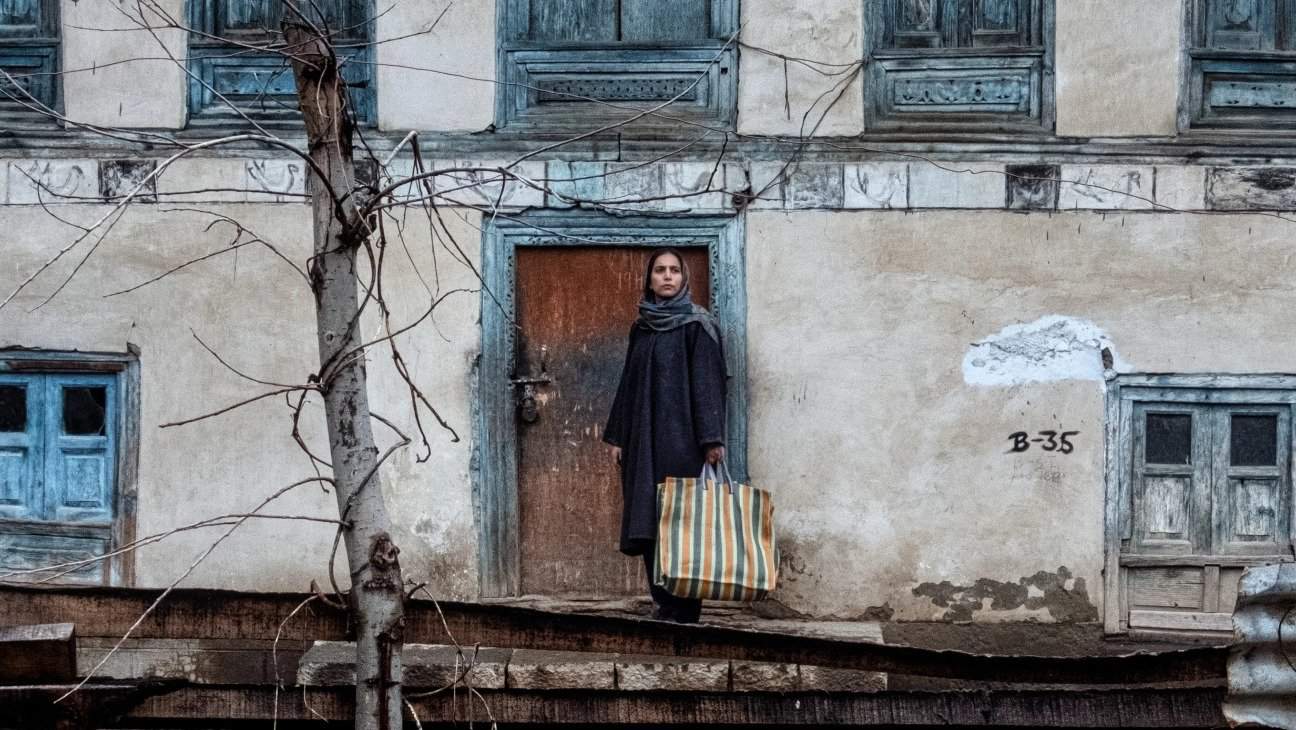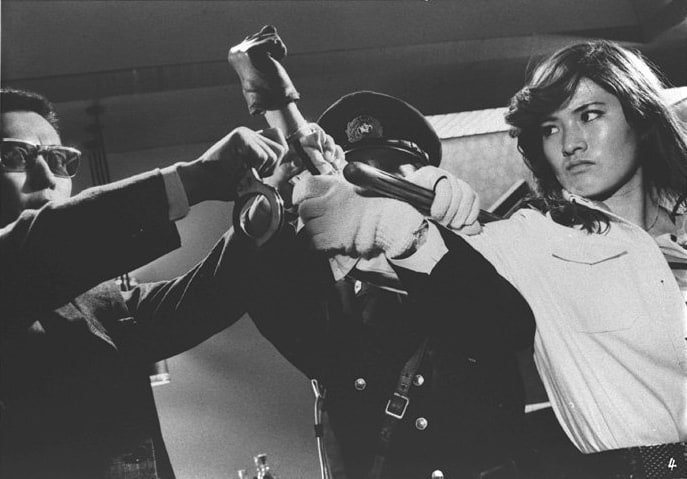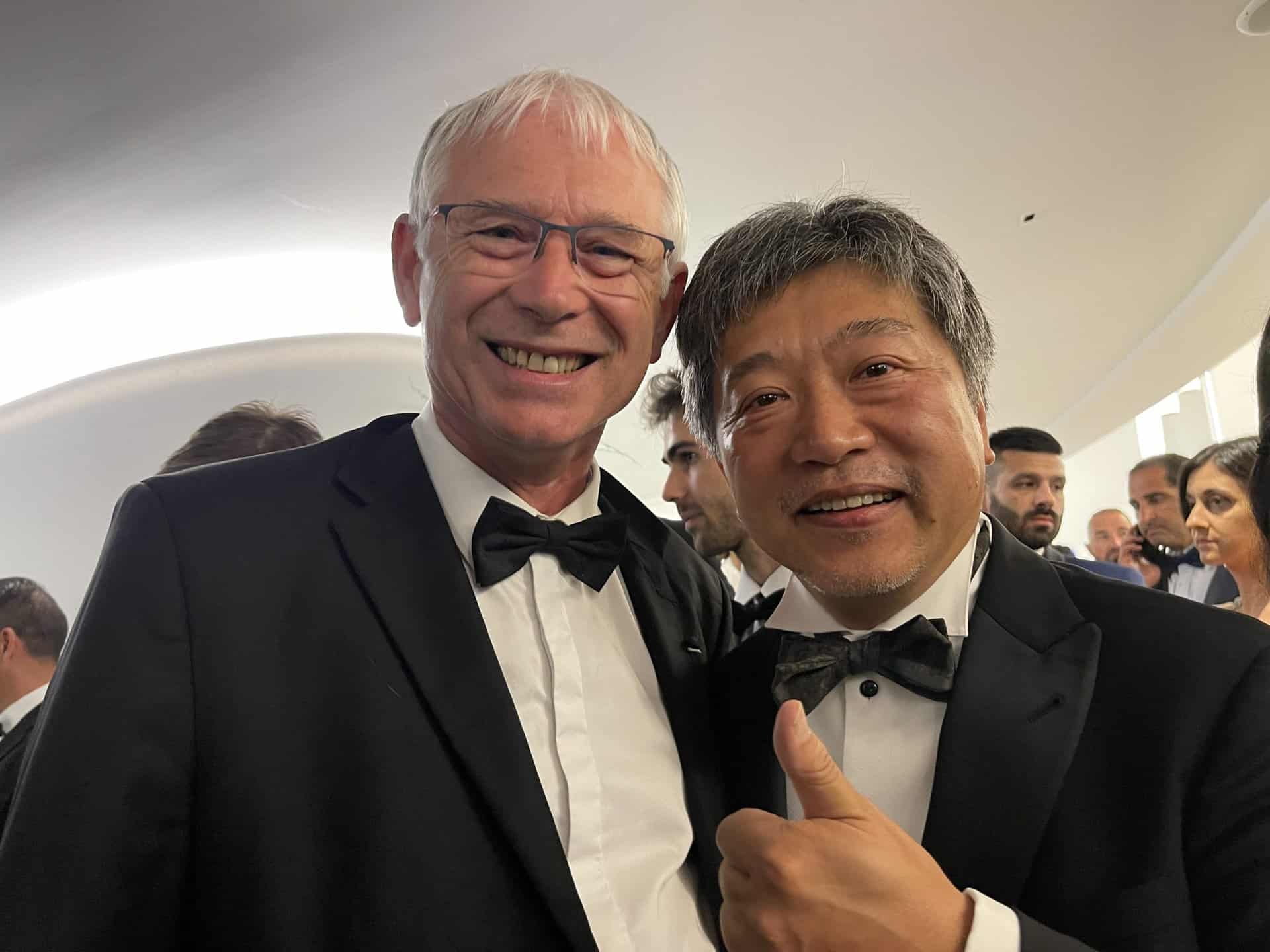As is well known, China is a multiethnic nation of 56 ethnicities. However, as the population of the majority Han overwhelms others, it is easily neglected there are different types of Chinese National living in China.
Director Huo Ning's documentary ‘Noodle Kid' captures the journey of a young Hui boy. Hui is one of the minor ethnicities, mainly composed of ethnically Chinese who are Muslims. Their presence is found throughout China, mostly in the northwestern part. The main character Maxiang lives is Hualong Hui Autonomous Region in Qinghai, which is one of the poorest parts in China regardless of its economic rise in recent years.
This 107-minute-long documentary was released in the 24th Busan International Film Festival , in the Wide Angle, a competition section devoted to documentary films. Huo Ning's latest work is one of the contenders in this section.

Asian Movie Pulse had a chance to meet the director Hui Ning at the festival and learned further about his work and his view on internal Chinese society.
“It is a documentary about a boy, Maxiang, from Qinghai. He is separated from his home and his parents to work at a Chinese noodle shop. He tries to save some money and wants to open his own shop as soon as possible,” Director Hui introduced his new title.
Maxiang is a 12-year-old boy, from a poor Hui family. His parents are divorced, and his father was sent to jail when he was 10. His parents' dept falls to young Maxiang's shoulder, and he travels 3,000km away from his hometown to work in Chinese noodle, Lamian shop.

“Normally boys like Maxiang start work when they are 12 or 13. Considering that, Maxiang is not young in that group. Those kids drop out of their school when they are in 3rd or 4th grade to work and usually work at their relatives' shop.” he added.
Within developed countries perspective, it is too early to load burdens to minors; however, Huo Ning presents a different perspective.
“Kids from those regions, poor parts of China, recognise it as their fate, and unlike “normal” kids in the standard education path, they have little passion for studying. Instead, they want to earn some fortune money to open their own shop, and want to get married and have a family, sort of.”

“Not only Maxiang, but many kids like Maxiang also leave their home to earn money. Because of poverty, even the government allows minors' travel to work.”
Born in Zhengzhou, in Hunan province, the director said that there are thousands of hundreds of Lamian shops nationwide.
“There is a Chinese noodle shop near my company in Beijing, and I saw a similar case like Maxiang. Actually, there are many Chinese noodle shops throughout China, like Beijing, Shanghai, and Xian. The tastes of Northern part and Southern part have a huge gap between each other, and the food in coastal cities and inland cities vary considerably. I found common grounds among those shops. It is their name, Lanzhou Lamian.”
Lanzhou is a city in Gansu province, in the northwest part of China. Despite their location, many shops call their food ‘Lanzhou flavour.'
“It is so popular everywhere in China. Many of them are run by Qinghai people, with different tastes of their own. However, it is said that there are more Lanzhou Lamian shops in China than McDonald's or KFC in the whole world,” he explained the popularity of Lanzhou flavour in China.

China's economic growth has surpassed that of other countries' in the last decade. Many people are benefited by the nation's rapid growth, but on the other hand, the disparity of the wealth deepens. Director Huo said there are some pending issues from the rich-poor gap, and he predicts that it will take a decade or two to sort out this.
“It is quite well known that people travel to rich coastal cities to work but also move to inner cities to find a job. As I showed in the movie, coastal cities' living costs are not affordable for kids, as Maxiang's cousin said. So they choose inland cities instead, which is a doable- given-option.”
“It is not a very recent issue in China, it has lasted some time. But in two or three generations later, with diligent efforts, I think this fat gap between the rich and poor will close down,” he added.














